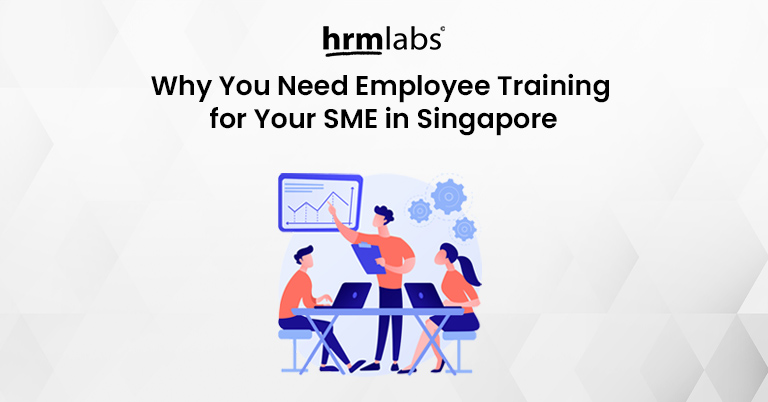Employee record management is the process of keeping track of the information related to your employees, such as their personal details, salary, attendance, performance, benefits, training, and more. It is an essential aspect of human resource management that helps you comply with legal requirements, improve productivity, enhance employee engagement, and protect your business from potential risks.
In this blog post, we will discuss why you need employee record management for your business, especially if you are operating in Singapore. We will also share some tips on how to implement an effective employee record management system that meets the standards of the Personal Data Protection Act (PDPA).
What are the benefits of employee record management?
Employee record management can bring many benefits to your business, such as:
Compliance with legal requirements
In Singapore, employers are required to maintain detailed employment records of employees covered by the Employment Act. These records include employee details, salary records, working hours, leave taken, and more. Employers must keep these records for at least one year after the employee leaves employment. Failure to do so may result in penalties or prosecution.
Additionally, employers must also comply with the PDPA, which regulates the collection, use, disclosure, and protection of personal data of individuals. Employers must obtain consent from employees before collecting their personal data. Inform them of the purposes and methods of data processing, ensure data accuracy and security, and allow employees to access and correct their data. Violating the PDPA may result in fines or lawsuits.
Improvement of productivity
Employee record management can help you streamline your HR processes and reduce administrative workload. By using a digital system to store and manage your employee records, you can save time and resources. That would otherwise be spent on manual tasks such as filing, retrieving, updating, and archiving paper documents. You can also automate workflows such as payroll, performance appraisal, leave management, and more. This way, you can focus more on strategic HR functions that add value to your business.
Enhancement of employee engagement
Employee record management can also help you improve your employee engagement and retention. By keeping accurate and updated records of your employees’ achievements, feedback, training, and career development plans, you can recognize their contributions, reward their performance, and provide them with opportunities for growth. You can also use employee records to communicate with your employees regularly and address their concerns or grievances promptly. This way, you can build trust and loyalty among your employees and foster a positive work culture.
Protection of your business from potential risks
Employee record management can also help you protect your business from potential risks such as disputes, litigation, fraud, or data breaches. By maintaining complete and consistent records of your employees’ contracts, policies, agreements, disciplinary actions, and termination procedures. You can avoid misunderstandings or conflicts that may arise from unclear or missing information. You can also use employee records to support your decisions or actions. In case of any legal challenges or claims from your employees or third parties.
Moreover, by implementing proper data protection measures such as encryption, access control, backup, and recovery. You can prevent unauthorized access or loss of your employee data that may compromise your business reputation or operations.
How to implement an effective employee record management system
To implement an effective employee record management system for your business in Singapore, you should consider the following steps:
- Define your objectives and policies: You need to determine what kind of employee records you need to keep. Why you need them, how long you need to keep them, who can access them and how you will dispose of them. You also need to establish clear policies and procedures for employee record management that comply with the PDPA and other relevant laws.
- Choose your format and tools: You need to decide whether you want to keep your employee records in hard copy or soft copy, or both. You also need to select the appropriate tools and systems for creating, storing, updating and disposing of employee records. For example, you can use Employee Record Management feature from HRMLabs cloud-based Human Resources Management System.
- Train your staff and communicate with your employees: You need to train your staff on how to use the tools and systems for employee record management. As well as on the policies and procedures that govern them. You also need to communicate with your employees on how their personal data will be collected, used and disclosed by your organization, and obtain their consent where necessary.
- Monitor and review your employee record management system: You need to regularly monitor and review your employee record management system to ensure that it is functioning properly and securely. You also need to update your system as needed to reflect changes in your business needs or legal requirements.
Employee record management is no longer a luxury but a necessity for businesses in Singapore. As the digital landscape continues to evolve, businesses must invest in robust and secure employee record management systems to stay ahead of the competition. Fostering a productive work environment, and paving the way for sustained growth and success.
HRMLabs employee record solution
Your employees are your most valuable asset. Managing their records effectively is a testament to your commitment to their well-being and professional growth. HRMLabs is cloud-based Human Resources Management System (HRMS) with integrated Employee Record Management to manage and secure employee records.

HRMLabs helps businesses grow by streamlining HR processes, ensuring compliance with labor laws, protecting employee data from unauthorized access, and improving overall efficiency. With HRMLabs, businesses can save time and money, reduce the risk of legal violations, and improve employee morale and productivity.


